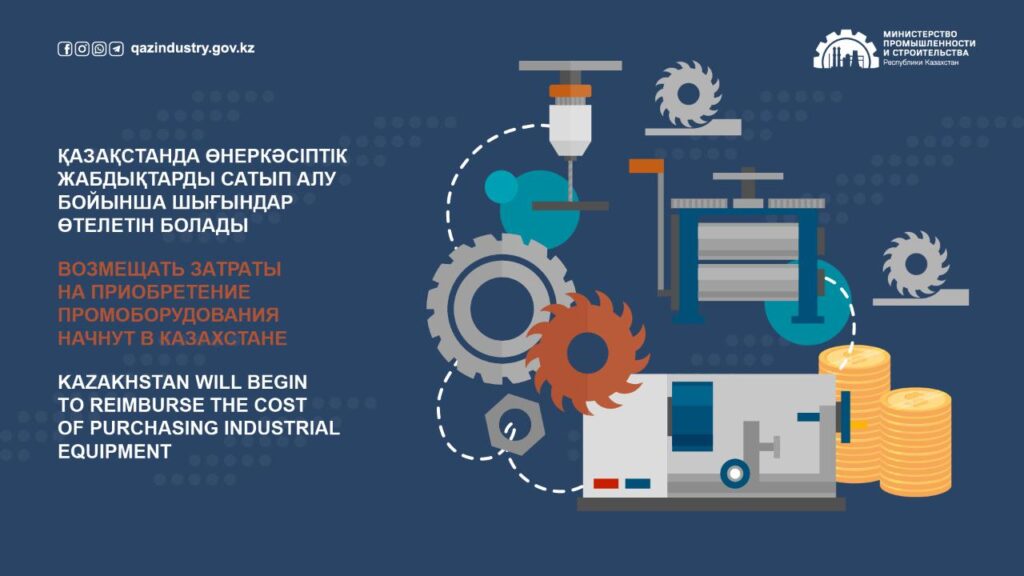Kazakhstan Set to Reimburse Businesses for Equipment Costs
The Ministry of Industry and Construction has announced that from mid-May, the government of Kazakhstan will reimburse small and medium enterprises (SMEs) for costs incurred in the purchase of industrial and technological equipment. The initiative is designed to help entrepreneurs modernize their technological equipment, increase productivity, and expand the range of their products. Arstanbek Sagiev, head of the business stimulation directorate at Kazakhstan’s Center for Industry and Export, QazIndustry JSC, commented that because the purchase of technological equipment accounts for the lion’s share of expenditure of any enterprise, the business community had long requested state support. Outlining the initiative, he reported, “From May 12, 2024, enterprises that manufacture products on the list of priority goods can apply for part reimbursement of costs associated with purchasing equipment. QazIndustry will reimburse up to 40 percent of funds spent on the purchase of technological equipment, but not more than 60 million tenge.” At least 30 percent of equipment currently used by Kazakh manufacturers is past its best and hence, has a negative impact on both productivity and the competitiveness of domestic producers. In the absence of funds to develop production, coupled with financial burdens imposed by costly loans, many small and medium businesses are forced to postpone updating and replacing essential equipment. According to QazIndustry the state’s new reimbursement initiative will prove one of the most effective means of stimulating enterprises to modernize their equipment and therefore, their production.



